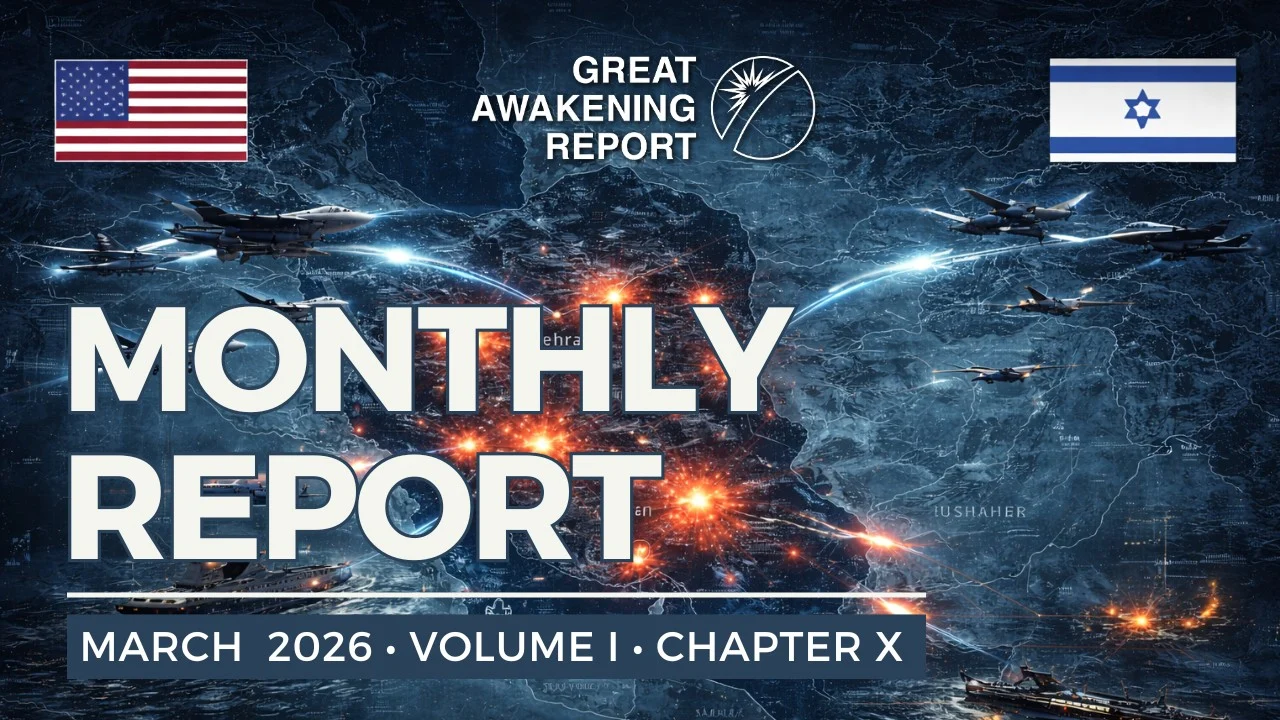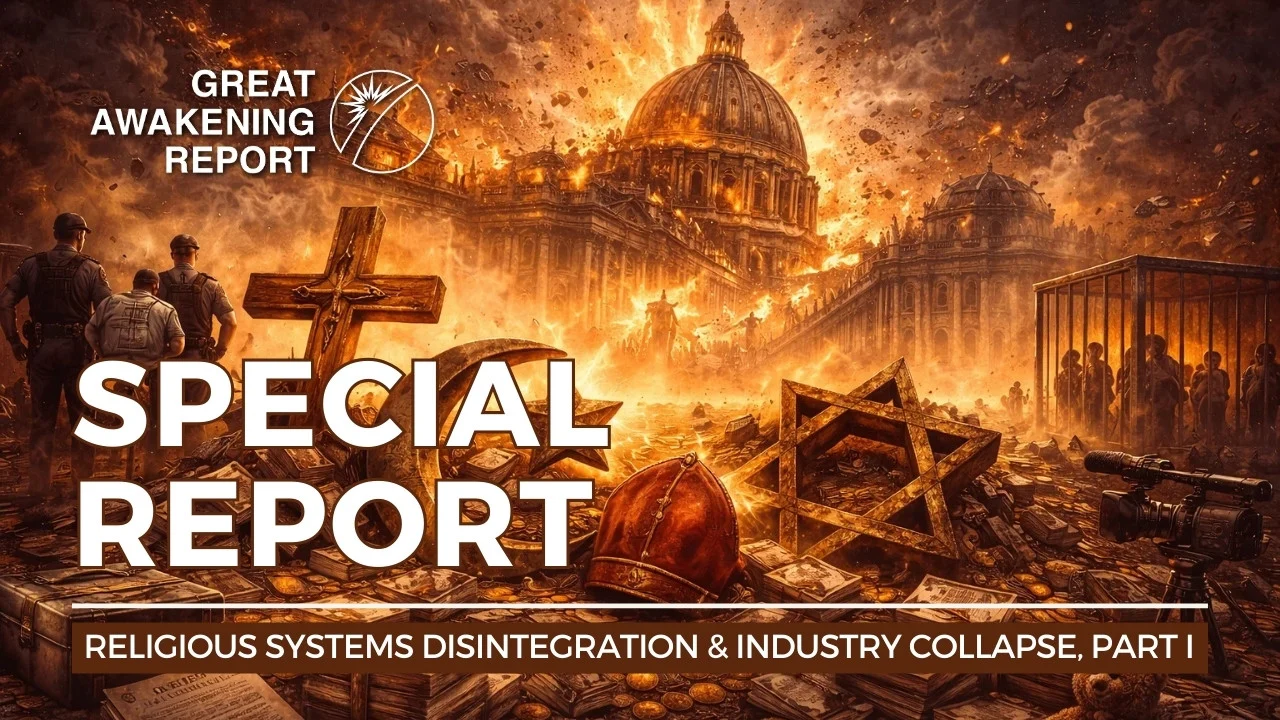Help Us Bypass Censorship. Share This.
Sign up to receive Our Weekly Briefing Newsletter
Begin your journey with weekly insights designed to expand awareness and ground you in truth. Our free tier gives you a powerful introduction without any commitment.
Introduction to the Federal Contract Freeze
Understanding the causes and implications of these freezes is essential for small businesses seeking to maintain stability and plan strategically during uncertain fiscal periods. For small businesses, this freeze can significantly impact opportunities for federal contracts, which are often vital sources of revenue. According to the U.S. Small Business Administration, federal contracts account for a large portion of the market for small businesses, enhancing their growth and sustainability.
When a contract freeze occurs, small businesses may face delays in contract awards, which can affect cash flow and planning. This is particularly challenging for startups and those heavily reliant on government contracts. Recessions or shifts in federal budget priorities often precipitate these freezes, highlighting the vulnerability of small enterprises to governmental fiscal decisions. Additionally, during freezes, larger corporations may dominate existing contracts, further marginalizing smaller firms. Understanding the context and implications of such freezes is crucial for small businesses aiming to navigate federal contracting effectively.
Scope of the Funding Lapse
These interruptions not only cause immediate hardships but can also have lasting consequences for societal well-being, innovation, and economic stability. Budgetary constraints have led to the halting of essential services, particularly in fields like education, healthcare, and infrastructure development.
- Education: Public education institutions often face funding deficits, impacting the delivery of services and resources to students. School programs reliant on federal funding may experience cutbacks, leading to diminished educational quality and resources.
- Healthcare: Healthcare programs such as Medicare and Medicaid may see disruptions, affecting patient care and access to services. Additionally, public health initiatives aimed at combating diseases may stall, risking public health outcomes and disease control efforts.
- Infrastructure: Federal funding is crucial for maintaining and developing infrastructure projects. Delays in financing can postpone construction and maintenance, leading to deteriorating roads, bridges, and public transport systems, potentially endangering public safety.
- Research and Development: Many scientific research initiatives, particularly those funded by federal grants, face potential termination. This disruption can halt innovation and progress in critical areas such as medical research, climate change, and technology development, ultimately stalling advancements that benefit society.
The implications of a funding lapse are far-reaching, affecting not only federal employees and contractors but also the general public who rely on these services. As highlighted by various studies, such interruptions not only cause immediate hardships but can also have long-term consequences for societal wellbeing and economic stability [Great Awakening Report].
Impact on Small Businesses
The reliance of small businesses on federal contracts often leads to significant financial strain and project delays. Many small enterprises depend on these contracts for a substantial portion of their revenue, making them particularly vulnerable to the fluctuations in federal funding and contract awards. According to a report by the Small Business Administration (SBA), small businesses represent approximately 23% of federal contract spending, highlighting their importance in the landscape of government contracting.
When federal funding faces interruptions or cancellations, these businesses can experience immediate cash flow issues. A 2022 study from NBC News revealed that contracts’ delays often result in project postponements, impacting small businesses’ operational capabilities and employee job security. These challenges highlight the importance of contingency planning and diversified revenue streams for firms engaged in federal contracting.Furthermore, small firms typically have less financial resilience than larger firms, making them more susceptible to bankruptcy in times of economic uncertainty.
Additionally, the bureaucratic complexities involved in federal contracts can lead to extended approval times, preventing timely project initiation. This situation is exacerbated by the sometimes unpredictable nature of federal budgeting, where funds are allocated based on political decisions rather than consistent business needs, leading to further uncertainties for small businesses relying heavily on these contracts.
In summary, federal contracts can provide crucial opportunities for enterprises, but they also pose significant risks through financial strain and potential project delays, making these companies particularly vulnerable in changing economic climates.
Voices from the Ground: Small Business Perspectives
Louise Thompson, owner of a small organic bakery in Ohio, expressed her struggles during the economic freeze: “Business is down 60% compared to last year. I had to reduce staff hours, which breaks my heart because these are people who rely on this job.” This sentiment echoes across various sectors as entrepreneurs grapple with reduced consumer spending and rising costs.
Another business owner, James Liu, who runs a local electronics repair shop in California, highlighted the shift in customer behavior: “People are hesitating to spend money on repairs when they’re uncertain about their own financial security. We used to see steady walk-in traffic, but now it’s a trickle.” His experience illustrates the broader trend of cautious consumerism during economic downturns.
These testimonials reflect a collective worry among owners that they may not survive the freeze without additional support. Patricia Reynolds, who runs a boutique in Texas, noted, “I’ve applied for loans and grants, but the process is daunting. Every day feels like a battle to keep my shop alive.” The paperwork and uncertainty surrounding financial assistance have left many feeling overwhelmed.
Surveys show that a significant number of small businesses are struggling to adapt to the new economic reality. According to a recent report, 42% of small business owners say they worry about their ability to cover operational costs within the next six months [Source: SBA]. The need for resilience and support has never been more critical as the backbone of the economy faces unprecedented challenges.
Government Response and Mitigation Strategies
To counteract these economic challenges, federal and local governments have introduced several strategies to help small businesses maintain stability and resilience.
- Financial Assistance Programs: Initiatives like the Paycheck Protection Program (PPP) during the COVID-19 pandemic provided forgivable loans to help businesses retain employees and cover operational costs. Similar programs can be adapted in future crises to ensure cash flow and prevent layoffs [Great Awakening Report].
- Grants and Subsidies: Directing grants and subsidies can enable small businesses to innovate and invest without the burden of debt. For instance, local governments frequently offer grants that target specific areas such as technology upgrades or sustainability projects [Great Awakening Report].
- Tax Relief Measures: Providing temporary tax cuts, deferments, or credits can alleviate the financial burden on small businesses. Adjustments to payroll taxes or corporate taxes can provide immediate relief, allowing businesses to redirect funds towards crucial expenses [Great Awakening Report].
- Regulatory Relief: Streamlining regulations that small businesses must comply with can reduce costs and administrative burdens. By temporarily suspending or waiving certain requirements, governments can help businesses focus resources on operations rather than compliance [Great Awakening Report].
- Access to Credit: Expanding access to credit through government-backed loans or partnerships with financial institutions can ensure that small businesses have the necessary capital to sustain operations. Improving liquidity can help avoid insolvency during tough economic periods [Great Awakening Report].
These strategies, among others, can be crucial in providing the necessary support for contractors and small businesses, promoting economic stability and resilience in the face of adversity.
Long-term Implications for the Federal Contracting Landscape
Recent funding lapses in federal contracting may carry significant long-term consequences for small businesses and the broader procurement ecosystem. With governmental budget constraints and uncertainty, small businesses face challenges in accessing federal opportunities that are crucial for growth and development.
These funding interruptions may lead to fewer solicitations for new contracts, adversely impacting small firms that typically rely on federal contracts for a substantial part of their revenue. As larger firms may have the resources to weather funding uncertainties, small businesses might find themselves at a competitive disadvantage, leading to a potential decline in their market share within the federal contracting space.
Furthermore, small businesses could experience increased pressure to adapt to changing federal priorities and contracting requirements, which may result in additional operational costs. This situation emphasizes the need for small firms to diversify their client base while remaining agile to respond to federal procurement changes.
Maintaining a focus on collaboration and innovation can help small businesses navigate these challenges, enabling them to seize opportunities when the contracting landscape becomes more favorable. For more insights on the federal contracting processes and securing opportunities, explore resources like our detailed guide on enhancing bid submissions and approaches for integrating innovative solutions in federal applications.
As the contracting landscape evolves, adaptability, diversification, and innovation will be key to maintaining competitiveness in the federal marketplace. For further reading, check out our article on creating a conscious business culture.
Conclusion: Preparing for Future Challenges
To successfully navigate the complexities of federal contracting, small businesses must prepare proactively for future challenges. Key strategies include:
- Diversify Your Portfolio: Engage with multiple government agencies rather than relying on a single source of revenue. This approach minimizes risk and enhances resilience during economic fluctuations [Conscious Business Culture].
- Stay Informed on Policy Changes: Keep abreast of legislation and regulatory changes affecting federal contracting. Utilize resources such as the Federal Acquisition Regulation (FAR) and government procurement websites to understand evolving requirements and opportunities [Deep State Awareness].
- Invest in Technology: Leverage technology, such as digital tools for project management and data analysis, to streamline operations and improve efficiency. This includes adopting cybersecurity measures to protect sensitive information and maintain compliance with government standards [Technology in Business].
- Build Strong Relationships: Networking with other contractors and federal procurement officials is essential. Establishing relationships can open doors to partnership opportunities and help you gain insights into best practices and shared challenges [Conscious Culture].
- Focus on Compliance and Quality: Ensure that all contracts meet stringent quality standards and comply with federal regulations. Regularly review your processes and employee training programs to align with compliance requirements [Training and Compliance].
- Financial Resilience: Maintain a robust financial plan that allows for fluctuations in cash flow. Consider government grants, loans, and other funding sources to stabilize your business during downturns [Financial Planning].
By applying these strategies, small businesses can strengthen their resilience, safeguard operations, and position themselves for growth in a shifting federal environment.
Sources:
- U.S. Small Business Administration
- Great Awakening Report
- Small Business Administration (SBA)
- NBC News
- SBA
- Great Awakening Report
- Great Awakening Report
- Great Awakening Report
- Great Awakening Report
- Great Awakening Report
- Great Awakening Report
- Deep State Awareness
- Technology in Business
- Conscious Culture
- Training and Compliance
- Financial Planning
Help Us Bypass Censorship. Share This.
Have questions?
At Great Awakening Report, we are dedicated to supporting your journey toward truth and enlightenment through our specialized Coaching and Consulting services.
Coaching Services: Our coaching programs are designed to guide you through personal awakening and transformation. We offer personalized sessions that focus on expanding consciousness, uncovering hidden truths, and fostering spiritual growth. Our experienced coaches provide the tools and insights necessary to navigate your path with clarity and confidence.
Consulting Services: For organizations and individuals seeking deeper understanding and strategic guidance, our consulting services offer expert analysis and solutions. We delve into areas such as global transitions, alternative news insights, and consciousness studies to provide comprehensive strategies tailored to your unique objectives.
Embark on a transformative journey with our Coaching and Consulting services, and unlock your highest potential. To learn more and schedule a session, visit our Coaching and Consulting pages.
Thank you
Thank you to our subscribers and readers for your continued support and dedication to truth and awakening. Your encouragement, engagement, and belief in our mission make everything we do possible. Together, we are expanding awareness and helping illuminate the path forward.
If you would like to further support the Great Awakening team and our ongoing efforts to share insight, knowledge, and truth, you can DONATE HERE.
With deep gratitude,
– Great Awakening Team
DISCLAIMER: All statements, claims, views and opinions that appear anywhere on this site, whether stated as theories or absolute facts, are always presented by The Great Awakening Report (GAR) as unverified—and should be personally fact checked and discerned by you, the reader.Any opinions or statements herein presented are not necessarily promoted, endorsed, or agreed to by GAR, those who work with GAR, or those who read or subscribe to GAR.Any belief or conclusion gleaned from content on this site is solely the responsibility of you the reader to substantiate.Any actions taken by those who read material on this site are solely the responsibility of the acting party.You are encouraged to think for yourself and do your own research.Nothing on this site is meant to be believed without question or personal appraisal.
COPYRIGHT DISCLAIMER: Citation of articles and authors in this report does not imply ownership. Works and images presented here fall under Fair Use Section 107 and are used for commentary on globally significant newsworthy events. Under Section 107 of the Copyright Act 1976, allowance is made for fair use for purposes such as criticism, comment, news reporting, teaching, scholarship, and research.
COMMUNITY GUIDELINES DISCLAIMER: The points of view and purpose of this video is not to bully or harass anybody, but rather share that opinion and thoughts with other like-minded individuals curious about the subject.










